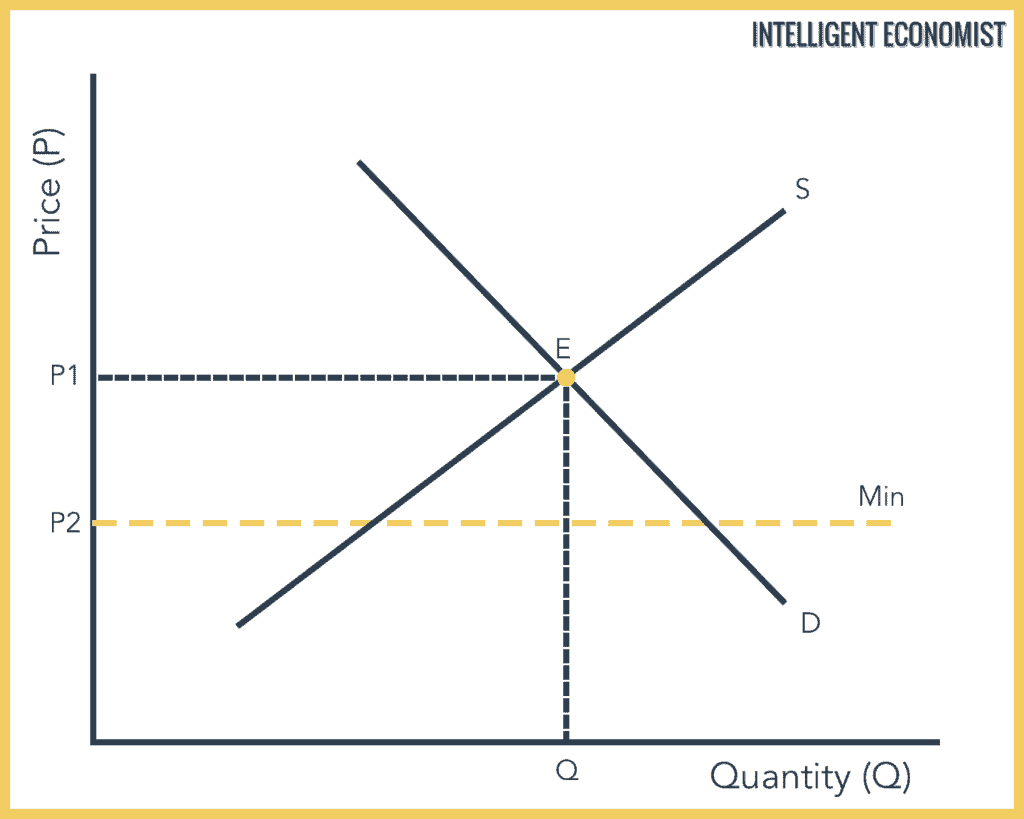Price and quantity controls.
Price floors and price ceilings pdf.
National and local governments sometimes implement price controls legal minimum or maximum prices for specific goods or services to attempt managing the economy by direct intervention price controls can be price ceilings or price floors.
This is usually done to protect buyers and suppliers or manage scarce resources during difficult economic times.
These price controls are legal restrictions on how high or how low a market price can go.
Example breaking down tax incidence.
Price floors prevent a price from falling below a certain level.
Price floors and price ceilings often lead to unintended consequences.
Price floors and price ceilings are similar in that both are forms of government pricing control.
Price can t rise above a certain level.
Price floors prevent a price from falling below a certain level.
This is the currently selected item.
Like price ceiling price floor is also a measure of price control imposed by the government.
But this is a control or limit on how low a price can be charged for any commodity.
Taxes and perfectly inelastic demand.
The anti competitive agreement by producers to fix prices above the market price transfers some of the consumer surplus to those producers and also results in a deadweight loss.
A price ceiling is a maximum amount mandated by law that a seller can charge for a product or service.
When a price floor is set above the equilibrium price quantity supplied will exceed quantity demanded and excess supply or surpluses will result.
Price ceilings goods or services are being sold in at too low of a price ensures that the producers receive assistance taxation on goods price ceilings and price floors a minimum price imposed by the government on a set of goods pros binding price floors cons occurs when there is.
It is legal minimum price set by the government on particular goods and services in order to prevent producers from being paid very less price.
It s generally applied to consumer staples.
A price ceiling is the legal maximum price for a good or service while a price floor is the legal minimum price.
Price floors and price ceilings are government imposed minimums and maximums on the price of certain goods or services.
When a price floor is set above the equilibrium price quantity supplied will exceed quantity demanded and excess supply or surpluses will result.
Percentage tax on hamburgers.
Price floors and price ceilings often lead to unintended consequences.
For this essay we would be looking at the pros and cons at price floor and price ceiling concepts on the scheme.
The effect of government interventions on surplus.

